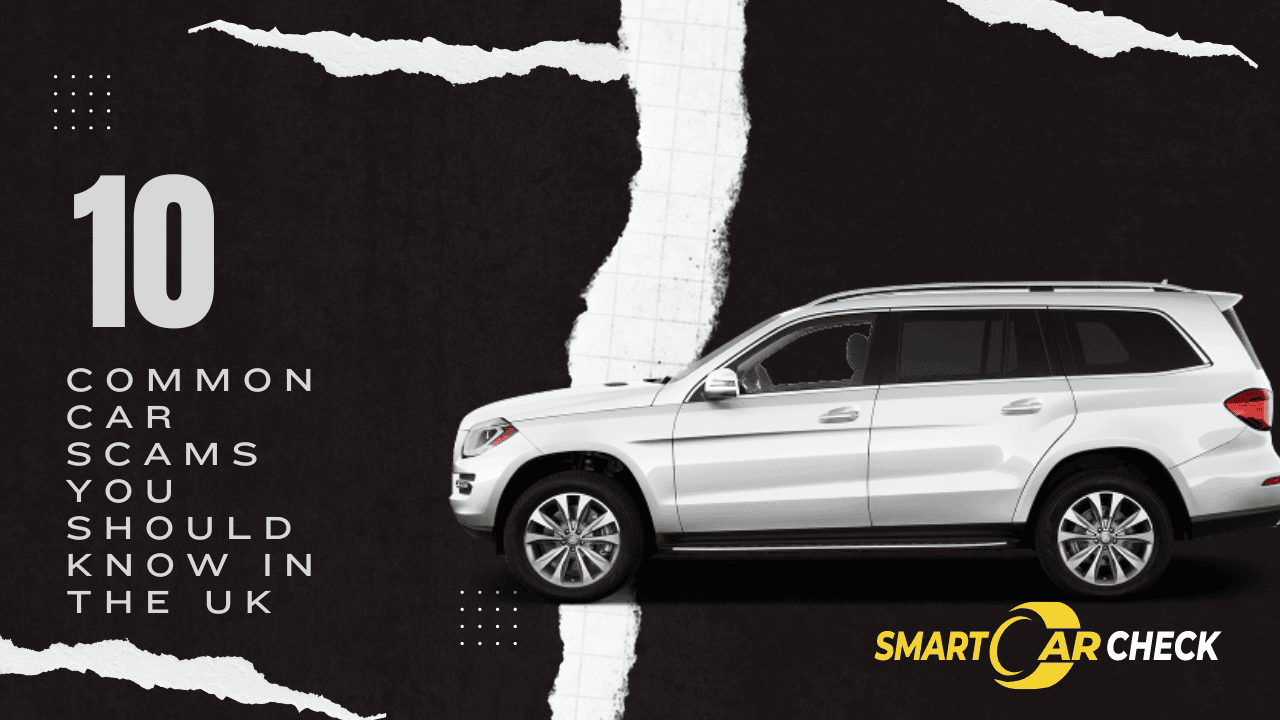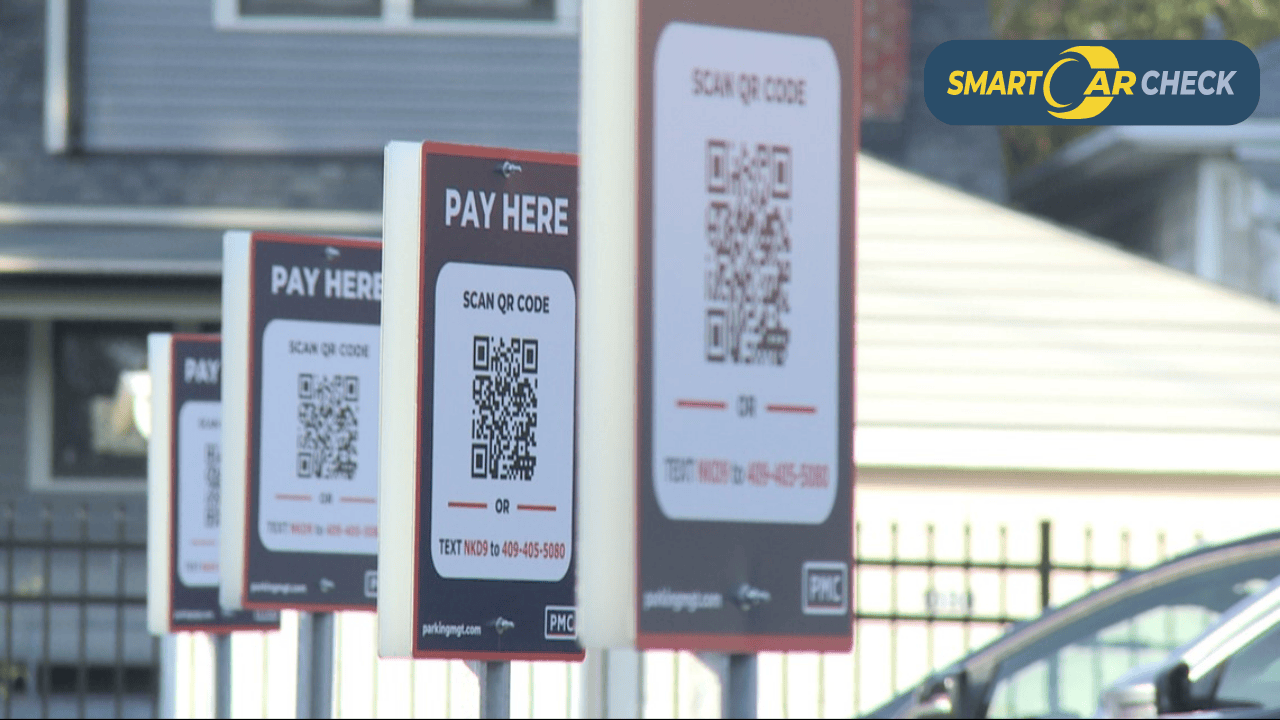As a prospective car buyer, it’s essential to be aware of potential used car scams and fraud when searching the used car market.
Some fraudsters and scammers prey on unsuspecting buyers, car owners, and even sellers, and being informed can help you avoid falling victim to their tricks.
In this comprehensive guide, we’ll take a look at ten common car scams you should know about in the UK and provide tips on how to protect yourself.
What are the Top 10 Car Scams In The UK?
Nobody wants to pay for a car and end up with a piece of junk or pay car tax and find out that your account has been wiped clean by hackers.
This is why you need to be prepared to spot and avoid these scams during your search for a new car. Here are the most popular car scams in the UK:
Fake Car Sales Websites and Ads
This is one of the most frequent online car buying scams you may find in the UK. How does this work? Online scammers create fake car sales websites and ads for non-existent dealerships and cars. They populate these sites with incredibly cheap cars to lure buyers into thinking they’re getting a bargain.
These criminals use names similar to genuine car dealerships and offer real cars at steep discounts. Buyers are encouraged to pay upfront without seeing the vehicle. Once the money is transferred, the fake car dealer disappears and you realize instantly that you’ve been scammed.
To avoid this scam, If you find a deal that seems too good to be true while buying a car, investigate the seller and exercise caution. Make sure you request the V5C logbook and do some research on the dealership before transferring your life savings for nothing.
Some of these scam websites may have been mentioned in reviews online, so do proper research before agreeing to make any purchase. You can also request to see the car for sale and pick up the car before making payments.
Car Cloning
Next, we have car cloning. Car cloning is a deceptive practice where criminals give one vehicle the identity of another almost identical legitimate vehicle.
The cloned car typically shares the same make, model, and color as the genuine vehicle. To execute this scam, thieves steal the registration plates or VIN plates from another car, a similar one, and use them on the stolen vehicle.
By doing so, they create a seemingly legitimate identity for the stolen car, allowing them to sell it without arousing suspicion. Unfortunately, unsuspecting buyers who unknowingly purchase a cloned car may face legal consequences.
The police can legitimately seize the vehicle and return it to its true owner, leaving the innocent buyer with financial losses and memories of what could have been a nice car.
To avoid this scam, make sure you run a car reg check. A car reg check and history report can help you verify the registration details of every vehicle and verify if it matches the V5C provided.
You can also check the VIN on the car. You can find the VIN on the dashboard of the vehicle, as well as the driver’s side door jamb.
If you spot any inconsistencies with the VIN on the car, and on the car report, inform the police immediately as you may have a cloned car right in front of you.
Read Also: How to Sell a Car Privately in UK
Fake Car Buyers
Oh, you thought only car buyers can get scammed? Well, now you know car sellers too are not safe in the market. How does this work? Fake buyers create online profiles, pretending to be genuine car shoppers. They engage sellers through platforms like Facebook Marketplace, eBay, or car classifieds, promising to buy the car. However, they intend to deceive or defraud the seller.
They come off with unrealistic prices and catch the interest of the seller. Then they go ahead and pay for the vehicle through fraudulent third-party websites or fake banker’s drafts. You only get to realize when you check for your money, leaving you with no car and no money.
To avoid car-selling scams, it’s essential to verify the legitimacy of potential buyers and avoid sharing sensitive information. Make sure payments are made in cash, via CHAPS/BACS electronic payments, or direct money transfers, such as Paypal. Be wary and don’t take any risks with your car.
Car Tax Scam Emails

For car owners, car tax scams emails are one thing to look out for. This is how it works; Fraudsters send alarming messages stating that your vehicle tax is unpaid or overdue. They create urgency, pressuring you to take immediate action. These emails are designed to look so real like they are coming from the DVLA. Some of them even go as far as including gov.uk in their links to make them look original.
When victims see these mails, their first thought is making the payment instantly, instead of checking if the previous payment failed or not. They then proceed to provide sensitive information and account details into these phishing websites and get scammed.
To avoid this scam, always verify the legitimacy of such messages directly through official channels (e.g., the DVLA website). Remember also that DVLA will not send you emails to confirm your personal details or payment information.
Car Park QR Code Scam
As cashless parking becomes more common, drivers increasingly use their mobile phones to pay for parking. Many parking meters now require users to scan a Quick Response (QR) code using their phone’s camera or call a number to make payments.
Scammers exploit this system by placing fake QR codes on parking meters. These fraudulent QR codes misdirect drivers to unauthorized payment websites. When drivers scan these fake QR codes, they unwittingly provide sensitive information or make payments to the scammers instead of paying for legitimate parking. This information collected can then be used to further steal thousands of pounds from the bank account.
To avoid this scam, ask for other means of payment before scanning any QR code. If there’s none, ensure the QR code hasn’t been tampered with or covered by a sticker.
After scanning, verify that the website matches your expectations. If it doesn’t, close the page immediately without making any payments.
Be cautious when using cashless parking systems and report any suspicious activity to authorities. Remember, if it looks suspicious, it probably is.
Crash for Cash
These fraudulent schemes involve criminals deliberately causing road collisions to claim compensation. The crash for cash scam used by scammers includes slamming on their brakes suddenly at busy junctions or roundabouts, causing the driver behind to collide with their vehicle. This leaves the innocent driver with higher car insurance premiums, financial losses, and a damaged car.
Sometimes, they even come with two vehicles and find a way to cause an accident to make fraudulent insurance claims. What about the clip for cash scam? Heard about this one? Some scammers make a fake smashing sound while on the road, accuse the driver of a car in front of breaking some part of his car, and demand money for repairs.
To avoid this scam, you need to stay vigilant while on the road. Make sure to keep a safe distance from any driver who seems to be driving erratically. If you are involved in one of these scams, contact the Insurance Fraud Bureau (IFB) with evidence from third parties to show that it was a staged accident.
Ghost Brokers
Ghost brokers are individuals who disguise themselves as insurance brokers and wrongfully interact with the public under the false pretext of selling insurance.
They blatantly defraud the public, by letting on they are selling insurance when, in fact, they don’t represent an insurance company at all.
These scammers may apply for a genuine policy in your name, keep your premium payments, and then cancel the policy shortly after — all without your knowledge.
This practice allows the fraudsters to deceive unsuspecting “customers” into thinking they have a legitimate policy.
The victim may only find out that the policy was canceled after they have to make an insurance claim.
Ghost brokers typically advertise cheap insurance on social media sites or messaging apps. Insurance fraudsters typically tout policies that are much cheaper than competitors’ policies.
A tip from the City of London Police: If a so-called agent’s insurance rate seems too good to be true, it probably is.
To avoid this scam, be wary of agents who advertise cheap insurance on social media sites or messaging apps. Check if these fraudsters have a phone number and are reachable by phone. Avoid agents who ask for cash-only payments in person, through social media, or via cash-transfer mobile apps, and do your research.
Dirty Oil Trick
If you are selling a car, the dirty oil trick is one to watch out for. Private car sellers are increasingly targeted by this scam, which involves tampering with a vehicle’s engine to deceive the seller. How does it work? Scammers secretly pour oil into the coolant reservoir or exhaust pipe of the car they’re interested in buying while inspecting the car.
During a test drive, smoke appears, and they claim the engine is faulty, demanding a significant discount.
To avoid this scam, be cautious during test drives. If you suspect foul play, ask buyers to leave and inspect the vehicle thoroughly. You can also report suspicious incidents to warn other sellers.
Odometer Rollbacks
Also known as “clocking,” this scam involves tampering with the odometer to reduce the recorded mileage, making the vehicle appear newer and more valuable than it is. A car with low mileage also appears as one without wear and tear. You may be looking at a vehicle with 100,000 miles and 50,000 recorded.
To avoid this scam, you can easily get a car history report with a Reg check and verify mileage records. You can also request for the MOT certificates, service history, or anything that can give you more information on the car’s mileage to spot clocked cars.
Curbstoning
Curbstoning is one vehicle scam that is also quite popular. In this deceptive practice, individuals pose as private sellers and draw car shoppers to places like the side of the road or vacant lots, where they sell unfit used cars.
The curbstoner pretends to be the vehicle’s owner to avoid city and state permits or licensing requirements imposed on legitimate authorized automotive dealers.
These licenses exist to protect consumers but these scammers do not want you protected, do they?
Curbstoning often involves selling damaged or salvaged vehicles without proper mechanical repairs or safety checks.
Buyers who fall victim to curbstoning may end up with worthless or unsafe cars, and the unscrupulous sellers vanish, leaving no contact information.
To avoid this scam, buyers should be vigilant, get car reg checks, and deal only with reputable sources.
Now you know the common scams and how to avoid them.
General Tips To Avoid Car Scams and Car Buying Scams
Now that you are aware of the common car scams in the UK, here are some general tips to help you avoid them:
- Get a car reg check from Smart Car Check and verify the history records of any vehicle before buying a used car. Verify whether the car has hidden records, including any accidents, thefts, or outstanding finances.
- Whenever possible, meet sellers in person to inspect and view the car thoroughly. Test drive the car to assess its condition and performance to avoid ending up with a lemon car at the seller’s.
- If a deal seems too good to be true, it probably is. Scammers often lure buyers with extremely low prices.
- Never pay upfront for a car or sell your car without proper documentation or a clear understanding of the transaction.
- Verify the details in the V5C logbook (registration document). Ensure it matches the seller’s information and the vehicle’s history.
- Investigate the seller’s background. Look for reviews, ratings, and any red flags. Avoid dealing with sellers who refuse to provide verifiable contact details.
- Scammers may create urgency to pressure you into making quick decisions. Take your time, ask questions, and don’t feel rushed.
- Prefer secure payment methods such as bank transfers or cashier’s checks. Avoid cash transactions or untraceable payment methods.
- Scammers may ask for unusual requests, such as paying through unconventional channels or using third-party services. Stick to standard payment procedures.
If something feels off or suspicious, trust your instincts and avoid being scammed.
Get a Detailed Car History Report with a Car Reg Check
The easiest way to avoid scams is with a car history report and Smart Car Check gives all the information about the car you need to make a safe purchase. Here are some of the essential records you can access with Smart Car Check:
|
| |
|
|
|
|
| |
|
|
|
|
|
|
|
|
|
View this car report for a 2016 TESLA Model S 85D with Reg Number RT62TES. Don’t make a car purchase without a detailed car history check. Avoid car buying scams now!
Frequently Asked Questions
How do you know if someone is scamming you for a car?
When buying or selling a car privately, there are several red flags to watch out for to avoid being scammed when selling your vehicle. If a potential buyer insists on paying the asking price of the car without seeing it in person or tries to collect the car at an address different from the one listed, they may be trying to scam you. Additionally, be wary of anyone who asks you to hand over your car without paying for it first, especially if they want to collect the car behind closed doors. You also need to be careful not to buy a cloned car. To avoid becoming a victim of these vehicle-related scams, always insist on meeting the buyer in person and delivering the car after receiving payment, rather than via an online payment service. It’s also a good idea to research any scams reported in your area involving the make and model of the car you are selling or buying and to be cautious when selling the car to a stranger.
What are the car scams on Facebook Marketplace?
Common used car scams to look out for on the Facebook marketplace are: False advertising lures buyers with unrealistically low prices, only to redirect them to distant or non-existent locations for vehicle inspection. Phishing scams trick buyers into providing personal or financial information under the guise of completing a transaction. Some scammers fabricate car listings, vanishing once payment is made, leaving buyers with nothing. Stolen cars may surface on Facebook Marketplace, leading unsuspecting buyers into legal and financial troubles. Cloned identities of legitimate sellers or dealerships are used to create fake listings, deceiving buyers into believing they’re dealing with genuine sellers
What to do if you've been scammed buying a car?
If you recently bought a car and found out that you’ve been scammed, you need to: Contact Authorities: Report the incident to your state attorney general, the Better Business Bureau, and the FBI’s Internet Crime Complaint Center. Notify Financial Institutions: If money was transferred, inform the relevant institution. File a Complaint: File a complaint with the Federal Trade Commission (FTC).
How can I spot a clocked vehicle?
You can easily spot a clocked vehicle when you get a vehicle history check. With this check, you can view the accurate mileage records and check if the odometer has been rolled back or not. You can also verify the year, make, and model of cars and find out if any car is a legally registered car, stolen car, and view other hidden records.




